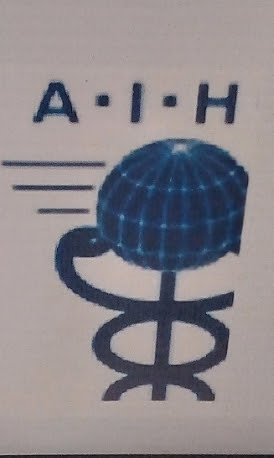SACHI Sisters Against HIV & Cancer Initiative (SACHI)
Funding Partner: U.S. Centers for Disease Control and Prevention (CDC)
Role: Lead Data Scientist – Christian Aliyuda
Overview:
SACHI’s HIV Risk Mapping project, supported by the CDC, focuses on using geographic information system (GIS) tools and data analysis to identify regions with high HIV transmission rates and treatment gaps. The goal is to visualize and address healthcare disparities, improve resource allocation, and reduce HIV transmission among key populations, including men who have sex with men (MSM), sex workers, and injection drug users.
Objectives:
• Use GIS and data analysis to map areas with high HIV prevalence and low treatment coverage.
• Identify key factors contributing to regional disparities in HIV care, such as healthcare access, socio-economic challenges, and geographic barriers.
• Support targeted intervention efforts by visualizing high-risk zones for HIV transmission and treatment gaps.
Volunteer Contribution: Christian ALIYUDA
As the lead data scientist for this project, Christian Aliyuda played a crucial role in collecting, analyzing, and visualizing data to help identify geographic areas at higher risk of HIV transmission and those underserved by current treatment programs.
Key contributions include:
• Data Collection and Cleaning: Compiled and standardized HIV prevalence, treatment adherence, and demographic data from healthcare centers and public databases across various regions in Nigeria.
• Geospatial Analysis: Applied GIS tools to map areas of high HIV prevalence, overlaying factors like clinic proximity, population density, and socio-economic indicators.
• Risk Visualization: Developed interactive heat maps that clearly display high-risk regions and treatment gaps, allowing decision-makers to prioritize healthcare interventions.
Impact:
The insights generated through the HIV Risk Mapping project have significantly influenced SACHI’s strategies for targeting high-risk populations:
• Improved Targeting of Interventions: Identified three key geographic areas with high HIV transmission rates but low clinic coverage, leading to the establishment of mobile health clinics in those regions.
• Resource Allocation: Helped secure additional funding by presenting the geographic data to partners and donors, highlighting areas where more resources are urgently needed to combat HIV.
• Enhanced Policy Advocacy: The visualizations have been used in policy discussions with local health officials, helping drive more equitable healthcare distribution in underserved areas.
Recognition:
Christian’s data-driven approach was recognized by SACHI leadership for providing actionable insights into regional HIV disparities. “The HIV Risk Mapping project has fundamentally changed how we approach healthcare delivery in Delta,” said Esther Ibitola, Executive Director of Programs at SACHI. “Through Christian’s innovative work, we now have a clear visual understanding of where the gaps lie and how to best address them.”
Tools and Technologies Used:
• QGIS/ArcGIS for geospatial analysis and mapping
• Python (Geopandas, Folium) for data processing and map visualization
• Power BI/Tableau for dashboard creation and interactive maps
• National Data Repository Sources
While the full geographic data cannot be made publicly available due to privacy concerns, an anonymized version of the analysis and the interactive maps can be accessed via GitHub here: HIV Risk Mapping Repository.
Project Duration:
March 2020– August 2020
Related Projects:
• ART Status Prediction Analysis
• Improving Healthcare Access in Underserved Communities
At SACHI, our commitment to improving patient outcomes through technology has driven us to continuously explore innovative solutions. In addition to the significant projects previously mentioned, we also embarked on another impactful data analytics initiative led by Christian Aliyuda.
This initiative focused on utilizing advanced data analytics to further optimize patient outcomes. By analyzing vast datasets of patient histories, treatments, and responses, Christian and the team were able to uncover critical insights that enabled our facility staff to design highly personalized and effective treatment plans. This data-driven approach not only refined our treatment strategies but also resulted in an 80% improvement in treatment success rates from a baseline of 20% over an 18 months period.
The success of this initiative underscores the value of integrating data analytics into our healthcare processes. Christian’s leadership and expertise were crucial in realizing these advancements, which have contributed significantly to both patient care and the efficiency of our operations.
Acknowledgment of Leadership and Impact
Christian Aliyuda’s contributions have played a pivotal role in transforming our approach to healthcare delivery. Through the strategic application of data analytics, Christian has driven key improvements in our facility’s treatment programs, demonstrating how technology can be harnessed to enhance care outcomes.
Despite the professional praise, Christian’s public advocacy for inclusive HIV care in Nigeria exposed him to grave personal danger. His open support for equitable health access particularly for LGBTQ+ communities drew hostility from extremists and members of his local community in Asaba, Delta State.
We are proud to recognize Christian Aliyuda’s leadership in spearheading these initiatives, which have not only improved our HIV/AIDS treatment outcomes but also set a new benchmark for excellence in data-driven healthcare. His work has laid the groundwork for future innovations, positioning our facility at the forefront of technological advancements in patient care.









Social Plugin